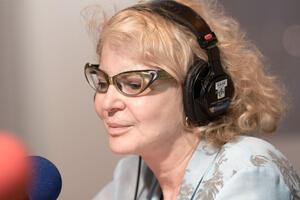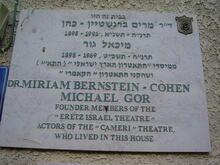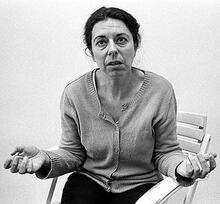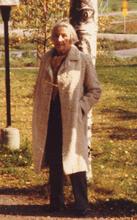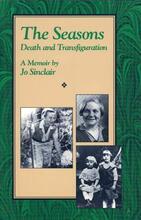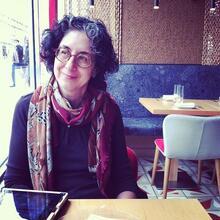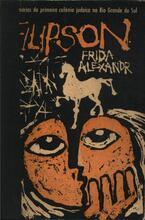Paula Jacques
Paula Jacques in 2010, photo courtesy of Georges Seguin via Wikimedia Commons.
Paula Jacques was born in Cairo in 1949 and lived in Israel before settling in France. She worked in the theater before becoming a journalist, a radio host, and a novelist. Many of Jacques’ works portray the French-speaking Jewish community of Egypt prior to their expulsion at the time of the Suez crisis. Her novels, with memorable female protagonists, have known significant success, often going quickly into paperback editions. Her most recent novels have dealt as well with the effects of the Shoah on Israeli society and on the fall of France in 1940 and the Resistance.
Paula Jacques is the pen name of Paula Abadi (b. Cairo, May 8, 1949). From 1999 to 2016 a talk show host on the French radio networks France Culture and France Inter, she is also a novelist, many of whose books go into second editions as paperbacks. Most of Paula Jacques’s writing reconstructs the life of the mostly French-speaking Egyptian Jewish community prior to their expulsion at the time of the Suez crisis. She is reputed to have referred to herself, somewhat humorously but aptly, as “the Isaac Bashevis Singer of Egyptian Jewry.”
Family and Early Life
Jacques’ father, Jacques Abadi, was a merchant; her mother was born Esther Sasson. The family left Egypt as part of the nearly entire exodus of Jews following the Suez crisis. Paula Jacques spent a short time on a Marxist A voluntary collective community, mainly agricultural, in which there is no private wealth and which is responsible for all the needs of its members and their families.kibbutz in Israel that left her a “painful memory of regimentation” (quoted by Armelle Cressard in Le Monde). Still a teenager, she left for Paris. By the age of seventeen she had married and settled in the provincial city of Saint-Étienne. There, from 1967 to 1971, she was cultural director of a theater, La Comédie Jean Dasté. Her marriage soon ended. In 1971, she headed a troupe of actors that toured Africa; she then entered Radio France Internationale as a reporter. She is quoted by Cressard as saying, “I am an autodidact, who has had to do everything for herself.”
Early Writings
In 1980, Jacques published her first book, Lumière de l’oeil (translated into English in 2009 as “Light of My Eye”), which recounts her childhood years in Egypt. One reviewer described it as “colorful and lively, a bit chaotic” (Michel). The book already showed Jacques’s ability to combine genuine warmth, gentle irony, and caustic humor in her portrayal of the Egyptian Jewish community’s courageous response to antisemitism, even while some of its members engaged in clownish social climbing or career schemes.
Another early novel that is typical of Paula Jacques’ ironic but caring contemplation of her Egyptian co-religionists is her 1988 L’Héritage de Tante Carlotta, an excerpt of which has been translated into English as Aunt Carlotta’s Legacy. Déborah ou les anges dissipés (Deborah, or The Dissipated Angels)—was her first prize-winning novel, garnering the coveted Femina award in 1991.
Relationships Across Boundaries in Jacques’ Writings
Respectable, impoverished widows in Paris set against their dissolute Jewish belly dancer sister in Cairo; a wealthy American Jewish old maid versus third-world Jewish prostitutes who would benefit from her father’s largesse: such feminine dyads often appear in the work of Paula Jacques. For example, Les femmes avec leur amour (Women and Their Love, 1999) recounts the bond between a pre-teen Jewish girl and her Muslim maid in Cairo. Jacques’s 2002 Gilda Stambouli souffre et se plaint (Gilda Stambouli Suffers and Complains) depicts the far more wrenching relationship between the merry widow Gilda Stambouli, who leaves Cairo for Paris, while her daughter Juliette—largely modeled on Paula Jacques herself—is relegated to a kibbutz. The enthusiastic Le Monde reviewer Hugo Marsan wrote: “With Gilda as her mouthpiece, Paula Jacques says that nothing—not even maternal love—should allow one to deny one’s identity or give up one’s chances for happiness. A good novel is always amoral, and its author must have the courage to cut into the very marrow of the characters and prove their authenticity, beyond considerations of good and evil.” Gilda Stambouli souffre et se plaint received the 2002 Book Award of the Europe 1 radio network and the city of Nice’s Baie des Anges Prize of the same year.
Jacques’ Rachel-Rose et l’officier arabe (Rachel-Rose and the Arab officer) appeared in 2006 (paperback edition, 2007). The novel depicts the romance between the young daughter of a Jewish family being expelled from Egypt and an Arab policeman who sometimes persecutes them and sometimes protects them—and who turns out to be the son of their not always well-treated maid from a few decades earlier. The book may be seen as an allegory of the vexed, centuries-long presence of Jews in Egypt, where they were tolerated but not quite integrated, and hardly desirous of full integration.
Later Themes
Jacques’ success has extended into third decade of the twenty-first centuries. Her themes have expanded to include effects of the Shoah on Israeli society and the fall of France in 1940 and the Resistance. Jacques’ Au moins il ne pleut pas (At least it’s not raining [first edition 2015, paperback 2016]) portrays an orphaned brother and sister from Nasser’s Egypt who are sent as refugees to Israel by more comfortable relatives who preferred exile in New York. The girl manages to continue her schooling and practice piano, but the boy drifts into petty criminality in Haifa rather than follow the plan the government had for him on a kibbutz. The siblings are taken in by a dyad made up of survivors of Ravensbrück. The past catches up with one of these survivors, who is prosecuted for having collaborated with the Nazis as a “blokova,” or female overseer, in order to save her own life, and, she claims, to mitigate the suffering of her fellow inmates. Ultimately, all four are resettled in a development in Kiryat Yam, in a happy ending that manages to avoid being saccharine.
Jacques’ Plutôt la fin du monde qu’une écorchure à mon doigt (Better the end of the world than a cut on my finger), appeared first in 2019 and in paperback in 2021. Louison, the protagonist, is a young, beautiful, self-centered rebellious Catholic woman from Le Havre who, in 1939, at that city’s port, meets David, a Jew from Algiers, with whom she falls madly in love. David sends Louison money to join him via a boat sailing from Marseille, and in the very midst of the German invasion and fall of France, Louison overcomes endless obstacles to get to the Mediterranean port. Commercial maritime traffic has, of course, all but ceased but she is helped by a Corsican mafioso involved in the Resistance, as is David, who has made it back to Marseille. He is ultimately killed fighting the Nazis, but not before Louison becomes pregnant; the entire story is narrated by their daughter, who admires her mother’s pluck but laments the narcissism that allows her to make her way through such turns of fortune. The book ends decades later, with the narrator’s bemused exasperation at seeing her mother, now with cancer, agree to a mastectomy only after some flirtation with the surgeon. The book requires much suspension of disbelief, but it is a gripping tale, and one discovers such facts as that a prewar mayor of Le Havre, Léon Meyer (1869-1948), was a Jew who entered the Resistance at over age 71.
The stormy scenarios of Paula Jacques’s novels reflect not only the tumultuous life and exile of Egyptian Jews, but also an episode in her own life. A romantic involvement with a member of the far left-wing terrorist group Action Directe led to her receiving in 1988 an eighteen-month prison sentence, suspended due to her unawareness of the exact nature of her lover’s activities.
Selected Works by Paula Jacques
Plutôt la fin du monde qu’une écorchure à mon doigt. Paris: Stock, 2019.
Au moins il ne pleut pas. Paris: Stock, 2015.
Lumière de l’oeil. Paris: Mercure de France, 1980 (Light of My Eye, English translation by Susan Cohen-Nicole, Teaneck NJ: Holmes & Meier, 2009).
Rachel-Rose et l’officier arabe. Paris : Mercure de France, 2006.
Gilda Stambouli souffre et se plaint. Paris: Mercure de France, 2002.
Les femmes avec leur amour. Paris: Mercure de France, 1997.
La descente au paradis. Paris: Mercure de France, 1995.
Déborah ou les anges dissipés. Paris: Mercure de France, 1991.
L’héritage de Tante Carlotta. Paris: Mercure de France, 1987 (Excerpt translated by Michael T. Ward as Aunt Carlotta’s Legacy. Yale French Studies 85 [1994]: 41–50).
Braudeau, Michel. “Le sexe des métaphores” (The sex of metaphors). Review of Paula Jacques’s Deborah ou les anges dissipés. Le Monde, October 11, 1991.
Cressard, Armelle. “Portrait: Ce que veut Paula Jacques” (What Paula Jacques Wants). Le Monde, January 4, 1998.
Marsan, Hugo. “Rien qu’une femme.” Review of Paula Jacques’s Gilda Stambouli se plaint. Le Monde, April 26, 2002.

